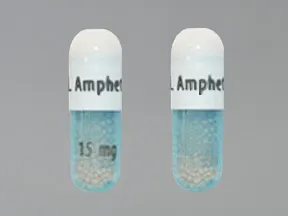

Tell your healthcare provider if you have or your child has any pain, numbness, skin color change, or sensitivity to temperature in the fingers or toes.ĭo not take amphetamine/dextroamphetamine if you fingers or toes may change color from pale, to blue, to red.fingers or toes may feel numb, cool, painful.Circulation problems in fingers and toes (peripheral vasculopathy, including Raynaud’s phenomenon). Signs and symptoms may include:.Slowing of growth (height and weight) in children. Your healthcare provider will monitor your child's height and weight when on this medication.Loss of muscle coordination or twitching muscles.Rapid heart rate and high blood pressure.Call your healthcare provider or go to the nearest hospital emergency room if you notice any of the following symptoms: Medications that may increase risk may include medications that increase serotonin (e.g., monoamine oxidase inhibitors (MAOIs), selective serotonin reuptake inhibitors (SSRIs), serotonin-norepinephrine reuptake inhibitors (SNRIs). Serotonin syndrome. This can may happen when this medication is taken with certain other medicines and may be life-threatening.Seizures. Your healthcare provider will stop treatment with this medication if you or child has a seizure.Tell your doctor if you experience the following symptoms: Hear, see, or feel things that are not there.Experience beliefs that are not based in reality.Psychosis. Tell your healthcare provider right away if you have some or all of the following symptoms of psychosis:.

Hypertension (increased blood pressure) and increased heart rate.Serious Cardiovascular Events. Inform your doctor if you have any heart problems. Stroke, heart attack, and sudden death have been reported in patients with serious structural heart and rhythm problems.Abuse and dependence. Your healthcare provider should check you or your child for signs of abuse and dependence before and during treatment.Serious side effects have been reported with amphetamine/dextroamphetamine including the following: Ask your doctor or pharmacist for more information. This is not a complete list of amphetamine/dextroamphetamine drug interactions. medications that block a protein in the body (CYP2D6) such as quinidine ( Qualaquin), fluoxetine (Prozac, Sarafem), amitriptyline (Elavil, Amitril, Amitid), and paroxetine (Paxil).medications that could lead to serotonin syndrome such as citalopram ( Celexa), escitalopram (Lexapro), fluoxetine (Prozac, Sarafem), fluvoxamine (Luvox), desvenlafaxine (Pristiq), nefazodone (Serzone), paroxetine (Paxil, Pexeva), sertraline (Zoloft), venlafaxine (Effexor), trimipramine (Surmontil), isocarboxazid (Marplan), amitriptyline (Elavil), nortriptyline (Pamelor, Aventyl), protriptyline (Vivactil), and clomipramine (Anafranil), and linezolid (Zyvox).medications that reduce the acid level in your stomach such as esomeprazole (Nexium), lansoprazole (Prevacid), omeprazole (Prilosec), pantoprazole (Protonix), rabeprazole (Aciphex), cimetidine (Tagamet), famotidine (Pepcid), nizatidine ( Axid), ranitidine (Zantac).Monoamine oxidase inhibitors such as tranylcypromine (Parnate), phenelzine (Nardil), selegiline (Eldepryl, Zelapar), isocarboxazid (Marplan), and rasagiline (Azilect).Tricyclic antidepressants such as trimipramine (Surmontil), amitriptyline (Elavil), nortriptyline (Pamelor, Aventyl), protriptyline (Vivactil), and clomipramine (Anafranil).Gastrointestinal alkalizing agents such as sodium carbonate and urinary alkalizing agents such as acetazolamide.Urinary acidifying agents such as ammonium chloride and sodium acid phosphate.Acidifying agents such guanethidine, reserpine, glutamic acid HCl, ascorbic acid, and fruit juices.Tell your doctor about all the medicines you take, including prescription and non-prescription medicines, vitamins, and herbal supplements.


 0 kommentar(er)
0 kommentar(er)
